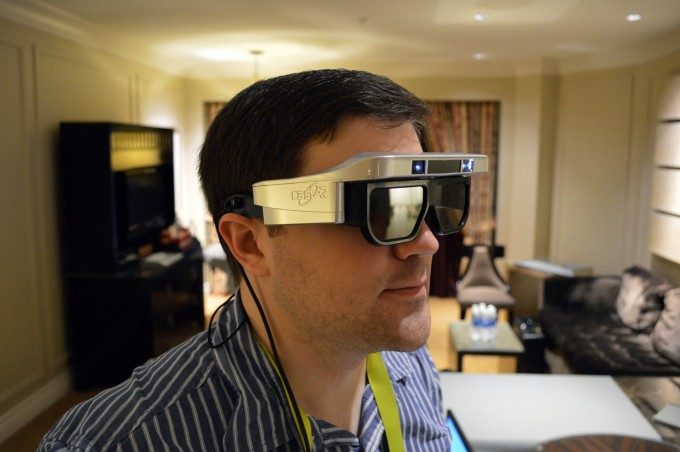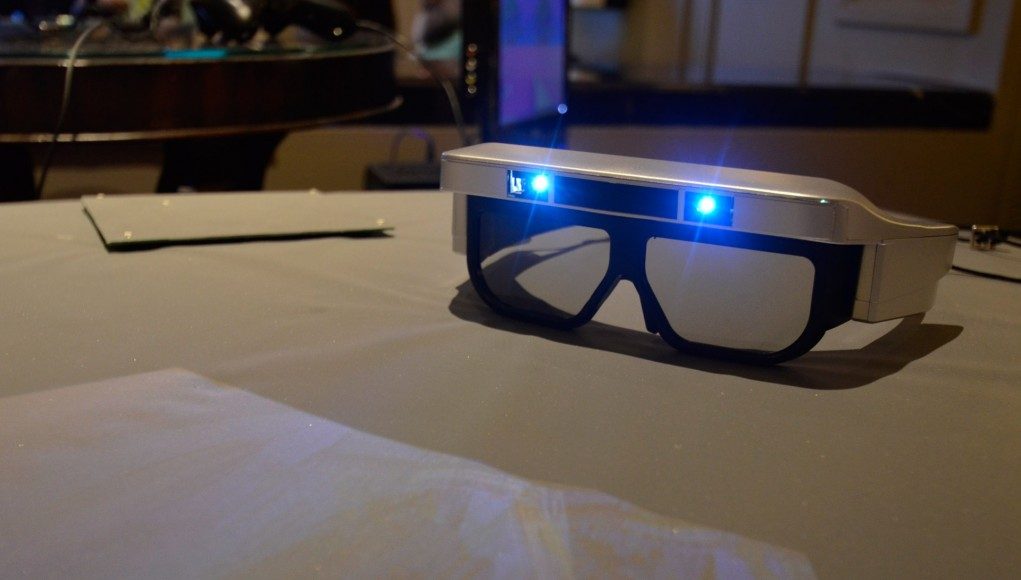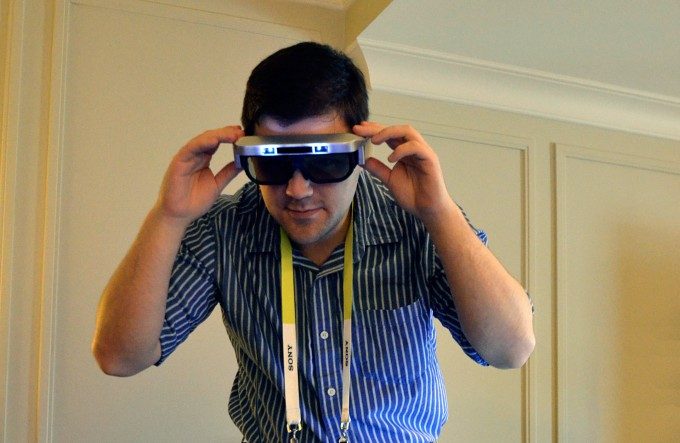CastAR (formerly Technical Illusions) today announced a $15 million Series A fundraising round to continue development of their augmented reality glasses of the same name. The company previously raised just over $1 million on Kickstarter in late 2013.
The CastAR glasses are rather novel in the world of AR and VR. Rather than using a near-eye display, the glasses have mounted projectors which bounce light off of a special retro-reflective material and back to the user through active-shutter glasses. Tracking the user’s position, the projection is updated in real-time to create the appearance of holographic content, effectively turning the material into a stereoscopic AR display. Because the retro-reflective material bounces light back to its origin, multiple users can use the same surface simultaneously without cross-talk, enabling cooperative interactions in the same physical space. The company has also touted a ‘VR clip-on’ accessory which would turn the AR headset into a VR display with a wide field of view, though details of the experience have been hard to come by.
See Also: Hands-On with CastAR Early Dev Kit and Through-Glasses Gameplay (Video)
The $15 million Series A investment comes from venture firm Playground Global and other investors that participated in an undisclosed seed round.
Among Playground Global’s founders is Andy Rubin, co-founder of Android Inc., the company that would go on to be acquired by Google to form the foundation of the Android operating system. Rubin stayed on with Google to develop Android and other projects for nine years following the acquisition.
“I was really intrigued by [CastAR’s] approach to tackling the problem of how to drive mainstream adoption of AR,” said Rubin. “They’re the only company I found to be simplifying the utility and application of augmented and virtual reality technology into a fun, accessible, and portable system that will wow kids and adults alike.”
CastAR CEO David Henkel-Wallace says that the background of Rubin and others at the firm makes Playground Global an ideal investor in the company.
“Playground Global is really focused on hardware, they’re highly operational. They match with us in terms of a great engineering network and resources. The whole point of the investment is to accelerate our engineering process and build a great product. It’s been different from other VC firms I’ve worked with in the past because they have so much operational capability,” Henkel-Wallace told Road to VR.
The investment comes after a late 2013 Kickstarter that raised just over $1 million for a development kit version of the CastAR glasses under the company name Technical Illusions. The company recently dropped the Technical Illusions name and opted to brand their company and product together under the name CastAR.
The company says they’ve shipped about two thirds of their hand-built prototype development kits to backers of the ‘EARLY castAR GLASSES’ Kickstarter pledge tier, though they’ve fallen significantly behind schedule for the final development kit which was originally planned to be delivered in September of 2014.

Henkel-Wallace says that a major reason for the investment is for the company to be able to deliver on their commitments to supporters of the Kickstarter.
“One reason we’re raising money is to fulfill the rest of the Kickstarter orders and have them built by a manufacturer so they can be drop-shipped,” he said.
In the mean time, the company has been gathering feedback from recipients of the prototype development kits and watched as they work on interesting content for CastAR.
“We’ve learned a lot by having these early development kits out,” said Henkel-Wallace. “People are already working on interesting stuff. A guy filmed himself in 3D playing a guitar; he springs out of the tabletop… it really impressed us when we saw it. We had a crew in europe build a hybrid AR/VR application where the had some people in headsets and some people in glasses playing a cooperative game.”








